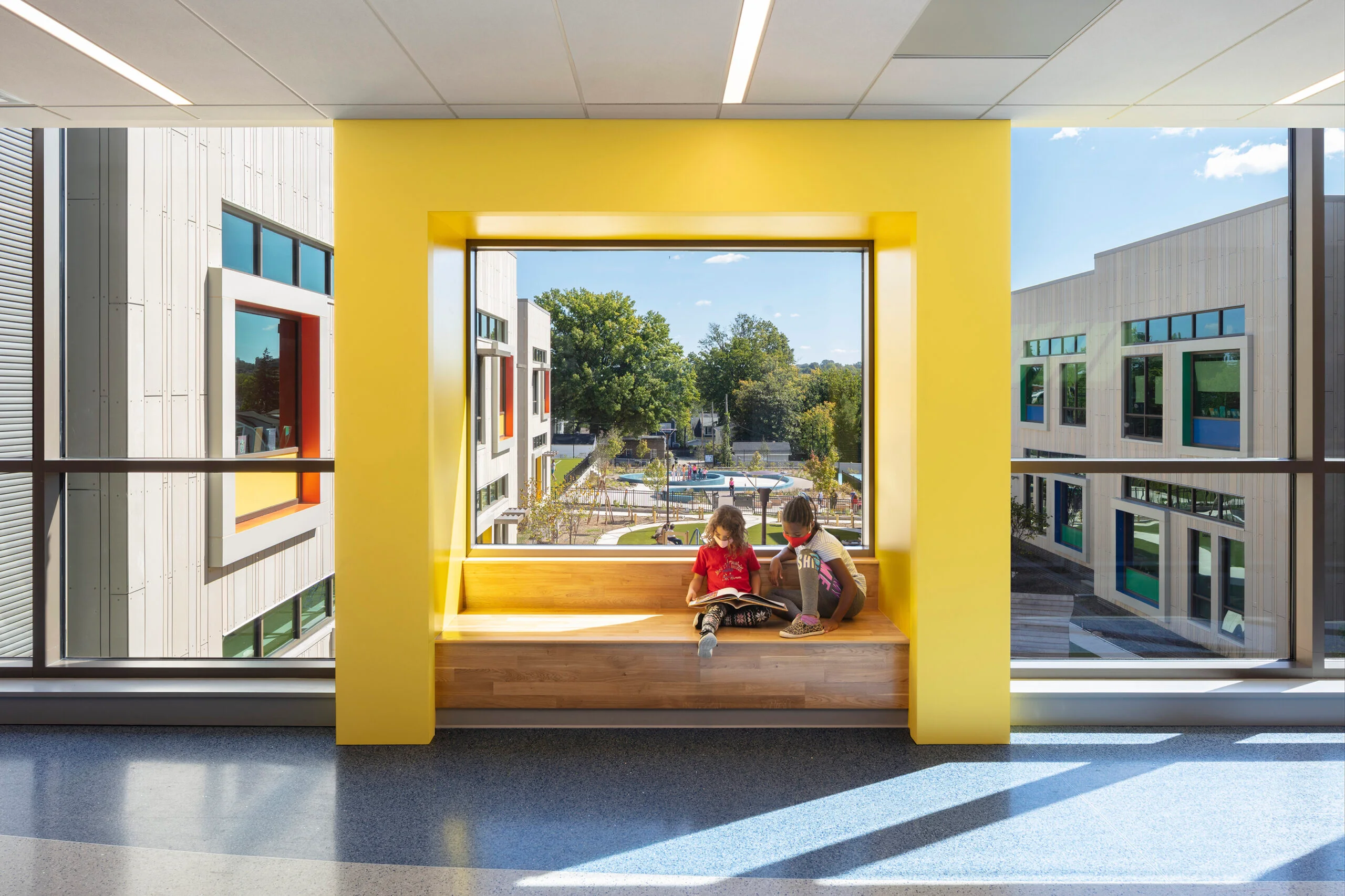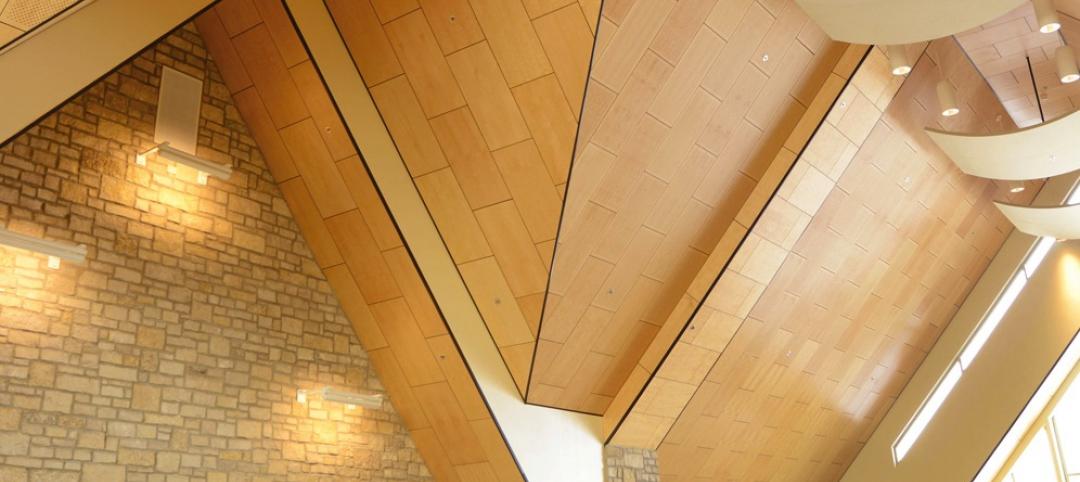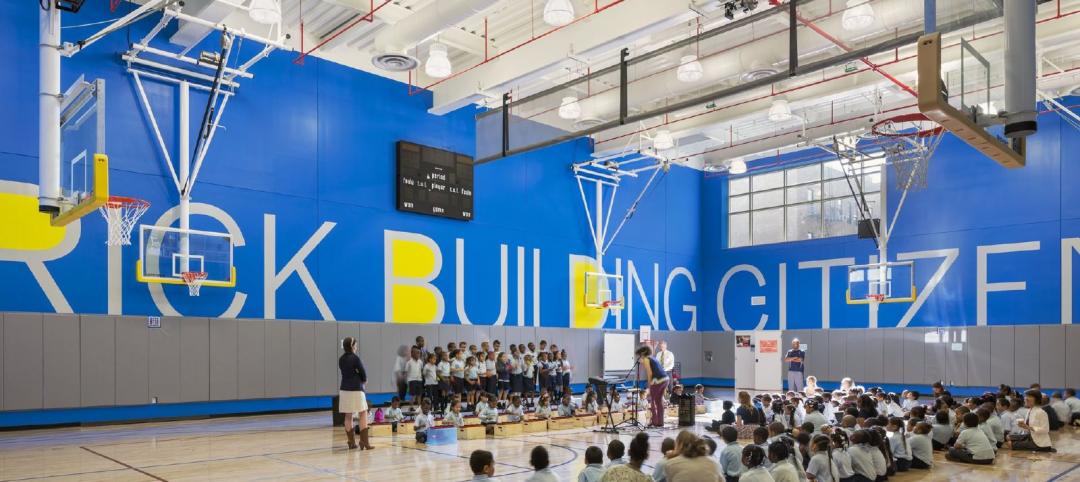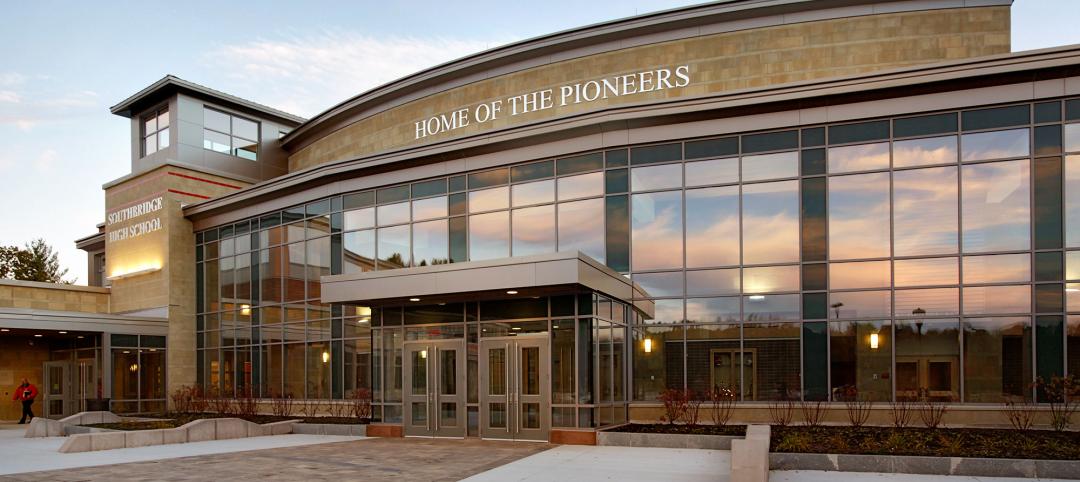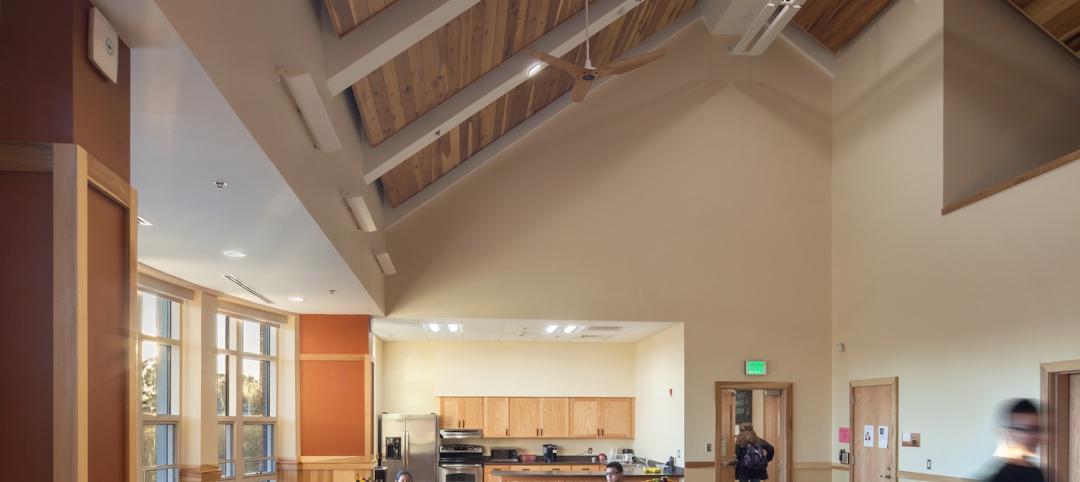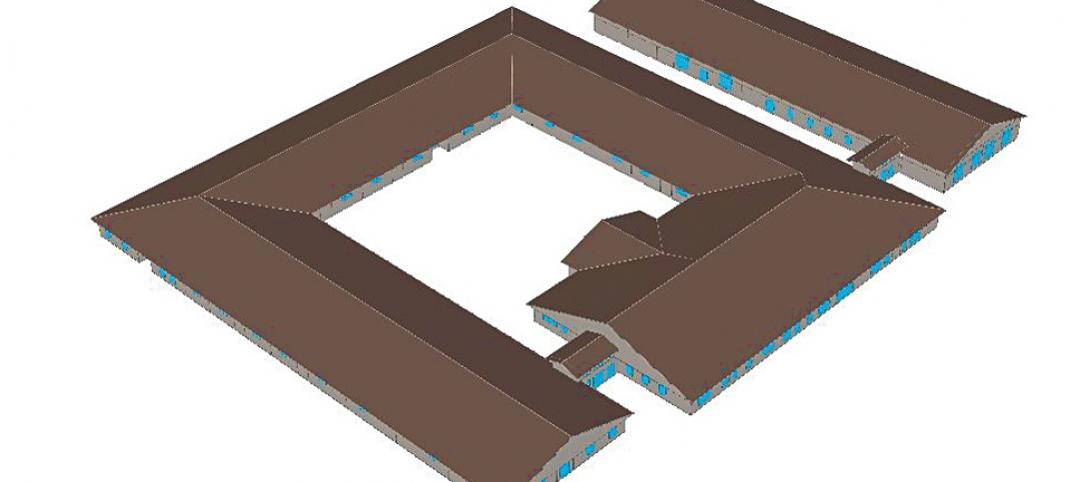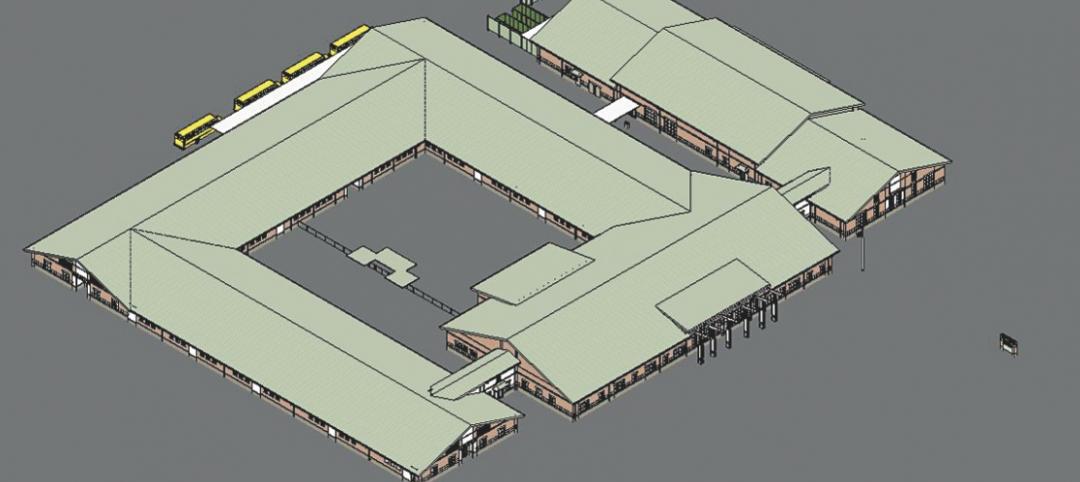A new K-12 school in Washington, D.C., is the first school in the world to achieve both LEED for Schools Platinum and WELL Platinum, according to its architect, Perkins Eastman.
The John Lewis Elementary School is also the first school in the District of Columbia designed to achieve net-zero energy (NZE). The facility was designed to improve student and teacher performance, health, and well-being, as well as reduce the building’s life-cycle costs. (See more K-12 schools coverage from BD+C.)
The new building replaced an obsolete, brutalist open-plan building. The design retained the best aspects of the open plan, providing flexible space and ease of communication, while improving adjacencies, daylighting, acoustics, security, and outdoor space.
The design emphasizes outdoor recreation and connections with the natural world, known to improve student health and academic achievement. The landscape design embeds natural systems with dynamic play and learning spaces to blur the walls of the classroom. A treasured place for the community, certain school amenities are accessible after-hours and on weekends.
The building offers a series of intimate, child-scaled houses inside and outside that foster collaboration and strong relationships. Designers benchmarked performance against several of the highest performing schools in the country on energy and Indoor Environmental Quality (IEQ) factors to provide the best daylight, most comfortable, and healthiest learning environments of any school building.
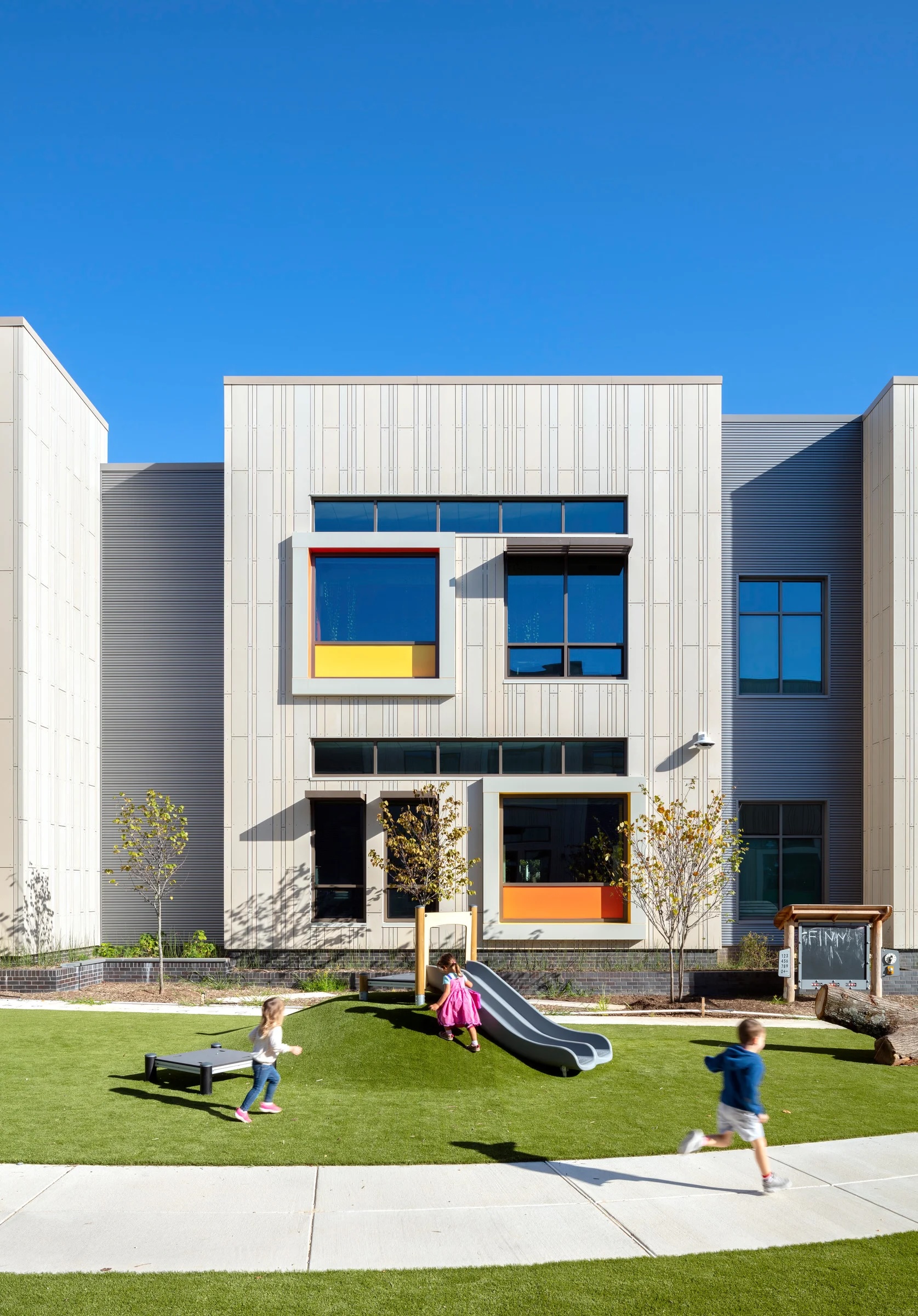
A high-performance dashboard tracks the building’s energy consumption, showcases the building’s sustainability features, and links to the school’s curriculum to address topics such as social and environmental justice, climate change, and water conservation. Through this interactive, online dashboard, students and teachers can discover how they interact with the building, and how the building and campus influence and are influenced by the larger environment.
The building is paired with Benjamin Banneker Academic High School, concurrently designed, which is also targeting NZE. The excess energy expected to be generated at John Lewis will help Banneker also achieve NZE.
Owner and/or developer: DC Department of General Services | DCPS
Architect: Perkins Eastman DC
MEP engineer: CMTA
Structural engineer: Yun Associates
General contractor/construction manager: MCN Build
Related Stories
| Sep 22, 2014
Sound selections: 12 great choices for ceilings and acoustical walls
From metal mesh panels to concealed-suspension ceilings, here's our roundup of the latest acoustical ceiling and wall products.
| Sep 9, 2014
Using Facebook to transform workplace design
As part of our ongoing studies of how building design influences human behavior in today’s social media-driven world, HOK’s workplace strategists had an idea: Leverage the power of social media to collect data about how people feel about their workplaces and the type of spaces they need to succeed.
| Sep 7, 2014
Behind the scenes of integrated project delivery — successful tools and applications
The underlying variables and tools used to manage collaboration between teams is ultimately the driving for success with IPD, writes CBRE Healthcare's Megan Donham.
| Sep 4, 2014
Best of education design: 11 projects win AIA CAE architecture awards [slideshow]
The CAE Design Excellence Award honors educational facilities that the jury believes should serve as an example of a superb place in which to learn. Projects range from a design school in Maryland to an elementary school in Washington.
Sponsored | | Sep 4, 2014
Learning by design: Steel curtain wall system blends two school campuses
In this the new facility, middle school and high school classroom wings flank either side of the auditorium and media center. A sleek, glass-and-steel curtain wall joins them together, creating an efficient, shared space. SPONSORED CONTENT
| Sep 3, 2014
New designation launched to streamline LEED review process
The LEED Proven Provider designation is designed to minimize the need for additional work during the project review process.
| Sep 2, 2014
Ranked: Top green building sector AEC firms [2014 Giants 300 Report]
AECOM, Gensler, and Turner top BD+C's rankings of the nation's largest green design and construction firms.
| Aug 27, 2014
Study looks at lessons from involving children in K-12 school design
A study examining what architects can learn from children, especially during the design process, is being carried out through the University of Sheffield's school of architecture.
| Aug 14, 2014
8 do's and don'ts for completing an HVAC life cycle cost assessment
There are many hurdles to overcome when completing a life cycle cost assessment. RMF Engineering’s Seth Spangler offers some words of advice regarding LCCAs.
| Aug 14, 2014
Life cycle cost analysis using energy modeling
A life cycle cost analysis helps a school district decide which HVAC system to use in $198 million worth of future building projects.


